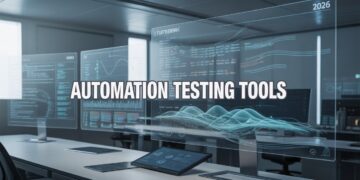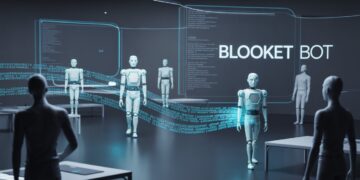Artificial intelligence is no longer a concept reserved for science fiction or experimental labs. Today, it is a driving force behind innovation in nearly every industry, transforming the way we live, work, and interact. From streamlining operations to making life-saving diagnoses, the power of artificial intelligence is evident in a growing number of real-world AI applications.
This article explores several AI success stories across key sectors, providing insight into how organizations are leveraging AI to solve problems, increase efficiency, and create better experiences.
Healthcare: AI Detecting Diseases Early
One of the most impactful uses of AI is in healthcare. With vast volumes of medical data and a need for quick, accurate diagnostics, artificial intelligence examples in this sector are both life-saving and cost-effective.
IBM Watson, once a Jeopardy-winning machine, evolved into a healthcare assistant capable of analyzing millions of pages of medical literature to suggest treatment plans for cancer patients. While IBM eventually pivoted from Watson Health, the innovation it sparked paved the way for more targeted tools.
Startups like Aidoc and Zebra Medical Vision use AI to interpret medical imaging, helping radiologists detect strokes, cancers, and fractures more efficiently. In some cases, these AI tools have helped reduce the time to diagnosis from hours to minutes, proving that AI in healthcare is not only viable but essential.
Retail: Personalizing the Shopping Experience
In the retail industry, AI has become a cornerstone of personalized marketing and inventory optimization. One of the most famous real-world AI applications is Amazon’s recommendation engine. By analyzing a user’s browsing history, purchases, and behavior, the AI system recommends products with a high degree of accuracy. This personalization contributes significantly to Amazon’s revenue, with studies estimating that up to 35% of sales are generated by its recommendation algorithms.
Walmart has also adopted AI to streamline supply chains and improve inventory management. Using predictive analytics, the retail giant can forecast demand more accurately, reducing waste and ensuring products are in stock when customers need them.
These AI success stories illustrate how artificial intelligence can enhance customer experience while driving operational efficiency.
Finance: Automating Tedious Tasks with Precision
The financial sector has been an early adopter of AI, especially in areas like fraud detection, risk assessment, and document processing.
JPMorgan Chase developed COiN (Contract Intelligence), an AI platform designed to analyze complex legal documents. What previously took 360,000 hours of manual labor is now completed in seconds, with greater accuracy and consistency.
Similarly, companies like Mastercard and PayPal utilize AI-driven fraud detection systems that analyze millions of transactions in real-time to detect suspicious activity. These systems not only reduce fraud but also improve customer trust and satisfaction.
Such artificial intelligence examples highlight the role of AI in enhancing security and productivity in high-stakes environments.
Transportation: The Journey Toward Autonomy
AI is revolutionizing transportation, particularly through the development of self-driving vehicles. Tesla’s Autopilot and Full Self-Driving (FSD) capabilities are among the most well-known AI case studies in this field. Leveraging real-time data from cameras, radar, and ultrasonic sensors, Tesla vehicles can assist with steering, braking, and lane changes.
Waymo, a subsidiary of Alphabet, has taken this further by deploying fully autonomous taxis in parts of Phoenix, Arizona. These self-driving cars use AI to process vast amounts of sensor data, interpret surroundings, and make safe driving decisions in real-time.
While regulatory hurdles remain, the success of these initiatives proves that AI in transportation is progressing steadily, with safety and efficiency at its core.
Education: Tailoring Learning with AI
Education is another area where AI is making a noticeable difference. Duolingo, the popular language-learning app, uses AI to personalize learning paths for users. The app adapts in real-time, adjusting lessons based on a learner’s performance, strengths, and weaknesses.
This personalization increases engagement and retention, providing a customized experience at scale. Similarly, platforms like Carnegie Learning use AI to support teachers by offering real-time feedback on student performance and suggesting tailored interventions.
These AI success stories demonstrate the potential of artificial intelligence to make education more accessible, engaging, and effective for learners of all backgrounds.
Agriculture: Smart Farming with AI
In the world of agriculture, AI is helping farmers increase yield while reducing resource usage. Precision agriculture involves using AI-powered drones, sensors, and data analytics to monitor crop health, optimize irrigation, and forecast weather patterns.
John Deere, a leader in farming equipment, has introduced AI technologies like See & Spray, which uses computer vision to detect weeds and apply herbicide only where needed. This targeted approach reduces chemical use and cuts costs for farmers.
These real-world AI applications are crucial as the agricultural sector faces the dual challenge of feeding a growing population while managing environmental impact.
Key Takeaways
Across all these industries, certain patterns emerge from these artificial intelligence examples:
-
Efficiency gains: From legal work to crop spraying, AI dramatically reduces time and cost.
-
Better customer experiences: Personalized shopping, adaptive learning, and safer transportation show how AI enhances user satisfaction.
-
Scalability: AI allows organizations to handle tasks at a scale that would be impossible with human labor alone.
These AI case studies underscore the potential of artificial intelligence to solve real problems, not just hypothetical ones.
Conclusion
The growing number of real-life AI success stories signals a clear shift from theoretical potential to practical impact. Whether it’s diagnosing cancer faster, delivering products more efficiently, or making driving safer, AI is shaping the future in meaningful ways.









